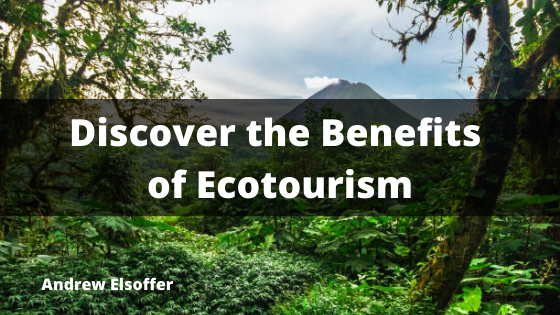Ecotourism is defined as traveling responsibly to natural areas, contributing to the conservation of the environment as a respectful guest of the local community. The education and ultimate understanding of a new eco-system is one of many benefits. Also known as sustainable tourism, it is about a travel experience that promotes the sustainable union of conservation, communities, and travel. As an eco-tourist, one decides to travel in such a way as to show respect to nature by taking the necessary steps to leave a footprint that does no harm to the environment.
Principles of Ecotourism
Anyone determined to abide by the principles of ecotourism should be aware of the following guidelines. First, ecotourism minimizes the impacts of one’s presence, physically, socially, behaviorally, and psychologically. Next, it builds awareness and respect, both culturally and environmentally. One should provide a positive experience, both for hosts and visitors. Direct financial benefits to conservation should be provided as well.
One should seek to contribute to the generation of financial benefits for people who are local as well as private industries. Finally, ecotourism recognizes the spiritual beliefs of indigenous people in one’s community, respecting their rights and working in partnership with them to empower and create a healthier environment.
Importance of Ecotourism
Consider the joys of travel’s adventures, and what often comes to mind are exciting trips with beautiful locales as the destination, places where perfect photographs can be taken, unique foods can be sampled, and new and different societies can be encountered. Tourism is about much more than facts. It permits immersion into the lifestyles and cultures of others, combining these encounters with a focus on the well-being of the planet to have an amazing experience.
Value for People, Value for the Planet
An ecotourist travels with far more than simple personal satisfaction at the forefront. One must want to heal the planet and ensure that those communities visited are rewarded by their hospitality, not harmed. When local communities do not thrive because of industry, they can especially benefit from tourists who offer respect to their lands while giving the provision of additional funding. In regions that are unspoiled, an ecotourist is offered an experience that serves as a reminder of nature’s enchantment.
Economic Stability
Just because commercial tourist attractions are placed in particular areas does not mean those communities benefit from them. Ecotourism brings tourist money to more unique locales that have not been spoiled by large corporations. Locals receive the financial benefit and the environment benefits from respectful visitors. Remember to do no harm when traveling … it is your opportunity to share not degrade your destination!

